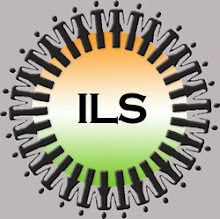Background on the panel
As this world develops into a busier place and transportation costs escalate, the stakes in strategic infrastructure availability have become greater than ever before. National and regional governments, once the source of much of the world’s investment in infrastructure, are now less able and willing to shoulder the burden of infrastructure development. Driven by a lack of government resources, public infrastructure agencies are turning to the private sector for infrastructure investment. Many private investments firms, with the goal to tap into new revenue producing markets, are increasingly pouring their own capital into public infrastructure. This is a very recent trend and presents great opportunities not only for the investors but also for governments to provide their citizens with world class infrastructure. Since India is at the forefront of innovative development and financing of infrastructure, we thought that this year’s conference should have an independent panel on infrastructure. With the excellent line of panelists, we will get a first hand perspective on opportunities and challenges facing infrastructure development in India.
Panel discussion
India's infrastructure needs in the years ahead are substantial--billions and billions of $ are needed to build, maintain, and expand transport, communications, water, electricity, and other forms of infrastructure. The discussion in the panel will revolve around the following topics:
How can the government insure that public infrastructure spending is allocated to the "best" projects, those with the highest returns?
What steps can India take to make sure it can access foreign capital to fund these projects?
What do foreign investors require in terms of returns, legal and regulatory frameworks, and so on?
How is India coping with the world wide recession and "seizing up" of capital markets?
In what sectors might we see "leapfrog" to newer, often "cleaner", technologies?
e.g., cell phones instead of "land lines"; solar power instead of carbon-heavy alternatives
How important are public/private partnerships likely to be as India moves forward on its ambitious investment program, and what factors are needed for such partnerships to be successful?
How might India take advantage of best practices elsewhere in terms of pursuing "smart growth" or sustainable development?
How should planners prepare for more and larger cities, whose growing populations are placing increasing strain on all sorts of infrastructure--water, roads, electricity, mass transit, etc.
Moderator
Dr. Paula R. Worthington
Senior Lecturer, University of Chicago Harris School of Public Policy
Paula R. Worthington is a senior lecturer at The Harris School, where she teaches classes in state and local public finance and cost-benefit analysis. She received her Ph.D. in economics from Northwestern University in 1988. She has served as an economist at the Federal Reserve Bank of New York and as a research officer, economic advisor, and senior research economist at the Federal Reserve Bank of Chicago.
Panelists
Dr. Santanu Das
CEO, TranSwitch Corporation
Santanu Das is the founder and CEO of TranSwitch Corporation in Shelton, Conn., which started operation in 1989. Prior to TranSwitch, he held various positions, including president of Spectrum Digital Corporation, a telecommunications equipment company, where he worked from 1986 through August of 1988. Before joining Spectrum, he held various executive positions, including director, Applied Technology Division of ITT Corporation's Advanced Technology Center in Shelton, Conn.
Mr. Satish Mandhana
Partner, IDFC
Satish has over 25 years of private equity and corporate finance / business strategy experience. At IDFC PE he is involved with firm’s investments in infrastructure space. He was earlier a Director of CDC Advisors (now Actis – an emerging markets PE Fund) where he was involved in many important investments and exits such as privatization of Punjab Tractor and initial capitalization of IDFC.
Ms. Susan Zielinski
Managing Director, Sustainable Mobility and Accessibility Research and Transformation (SMART), University of Michigan
Susan Zielinski recently joined CARSS at University of Michigan as Managing Director of the SMART project. Susan brings twenty years of experience catalyzing innovative, collaborative partnerships for sustainable transportation and healthy cities. Prior to 2004, Susan co-founded and directed Moving the Economy, a Canada-wide "link tank" that works to catalyse and support multi-sectoral New Mobility (sustainable transportation) industry development.
- Aman Randhawa
skip to main |
skip to sidebar


Fueling the Growth

- SABG
- South Asia Business Group (SABG) is one of the largest and most active student groups at Chicago Booth, serving the needs of people of South Asian origin or with interest in that region. We conduct a number of professional and social events to fulfill our members' interests throughout the year.
